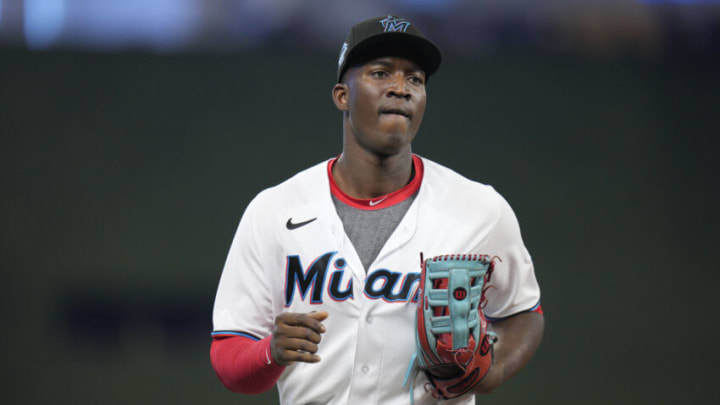DENVER — The Miami Marlins only play one series per year on the road against the Colorado Rockies. However, the Marlins have certainly made their mark when it comes to the home run records established at Coors Field throughout its history.
When it comes to Coors Field in Denver, no team (including the Colorado Rockies) hits more long home runs than the Miami Marlins
Since Coors Field opened up in 1995, players wearing a Miami Marlins uniform have hit three of the four longest home runs in the stadium’s history. That includes a new second-place entrant on the list after Jesús Sánchez pulverized a pitch from Rockies starting pitcher Ryan Feltner 496 feet for a home run on Memorial Day.
The pitch landed above the third deck at Coors Field in what is known as “the Party Deck.” It’s also somewhere that no other ball during game play (non-batting practice) has landed in the stadium’s history.
496 FT.
— Miami Marlins (@Marlins) May 30, 2022
😳😳😳😳😳😳😳 pic.twitter.com/j98o5L8Mbk
The longest home run in the history of Coors Field also came off the bat of a Marlin. On August 6, 2016, Giancarlo Stanton launched a ball into the center field seats 505 feet away from home plate. To date, it is officially still the only 500-foot home run hit at Coors Field.
Trevor Story of the Rockies hit one against the San Francisco Giants in 2018 that was originally measured at 505 feet. However, a new version of Statcast released in 2020 brought that number down to 487 feet, keeping Stanton’s long ball as the Coors Field standard.
Along with Stanton and Sánchez, Miami also has the fourth-longest home run at Coors Field, with Stanton hitting a pitch in 2012 an estimated 494 feet.
Ironically, the player tied with Sánchez for the second-longest homer at Coors Field is Mike Piazza, who spent one season behind the plate with the Marlins. However, his 496-foot shot in 1997 came when he was wearing a Los Angeles Dodgers uniform.
The longest home run hit by a Rockies player is credited to Hall of Famer Larry Walker, who connected on a 493-foot shot in 1997, tying for the fifth-longest in Coors Field history.
